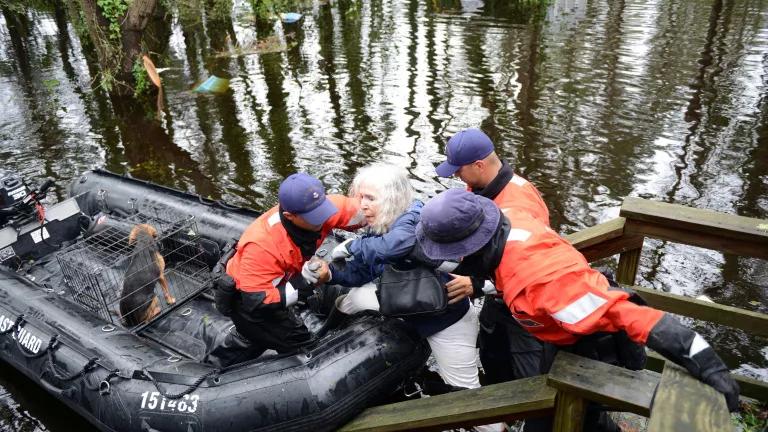The next round in the ongoing budget debate about the direction of our country is in full force on the United States Senate floor, and it’s not to be missed.
Senate Budget Committee Chair Patty Murray (D-WA) has crafted a Fiscal Year 2014 Budget Resolution that recognizes a healthy environment supports a healthy economy. It reflects the values of the American people by promoting clean energy, clean air, safe drinking water, protections for our wild lands and wildlife, and it commits to addressing the threat of climate change.
But some in Congress are dead-set on undermining the 21st Century vision the Murray budget puts in place by weighing it down with amendments worthy of a cut-and-paste from Big Polluters’ wish list.
We at NRDC, and our partners in a broad spectrum of health, conservation and environmental organizations, are paying close attention. We’re examining senators’ amendments that will, or could, be voted on. Some that we’ve seen so far are vaguely worded, apparently to hide the ball on what they’re about; some are clear. In either case, we are making sure the public understands the good, the bad, and the ugly.
We hope the Senate will defeat these misguided amendments intended to undermine or derail the Murray plan and accept those that make it better.
Following are a sample of the kinds of outrageous amendments that will threaten our communities and the future for our children, and some that would benefit them, along with our recommendations:
Sen. Bennet amendment #151, senators should support
This responsible amendment establishes a reserve fund to promote energy conservation and clean energy. Support this effort to promote responsible conservation and clean energy policies.
Sens. Bennet/Udall amendment #150, senators should support
The amendment supports a broad range of wildfire-related activities, many of which are currently underfunded, without adding to the deficit. Wildfire mitigation and preparedness, as well suppression and recovery, would be covered under a deficit neutral reserve fund.
It makes work related to flooding or watershed management resulting from wildfires eligible for federal funding. In some cases, while damage from last year’s destructive Colorado fires were eligible for federal funding, damage from floods directly caused by the fires was not.
Sen. Inhofe amendment #173, senators should oppose
This penny-wise-pound-foolish amendment would allow any governor to block Mercury and Air Toxics Standards projected to prevent as many as 11,000 deaths, nearly 5,000 heart attacks, and 130,000 asthma attacks every year if electricity rates in the state could be argued to rise by even one penny.
The Mercury and Air Toxics Standards are projected to deliver benefits to the American people of up to $90 billion annually, outweighing industry compliance costs by a factor of over 9 to 1.
EPA projected that these mercury standards could raise electricity rates by 3% on average, still well below historic levels, but that would be enough under Inhofe #173 to allow any governor to block these long overdue health safeguards from taking effect.
Sen. Inhofe amendment #175, senators should oppose
This free pass for farms amendment would limit protections against oil spills that occur on agricultural operations. First, oil is no less harmful to waterways and the wildlife if it happens to be spilled at an agricultural operation. Second, farms already have significant flexibility in meeting federal rules concerning spills. Farms had an extended period of time to comply with changes to the applicable rules; other facilities have been subject to these requirements since 2010 or 2011, whereas farms with the requisite amounts of oil products onsite are due to comply this May.
The rules also provide flexibility in developing plans for certain operations with smaller storage volumes and a good history with respect to spills. And, if farms experience hardship in meeting the May deadline, an individual extension is possible.
Sen. Johanns amendments #223 & 224, senators should oppose
This “cows-can-foul-our-water” idea would undercut EPA’s oversight of large industrial livestock facilities by blocking agency efforts to determine compliance with the Clean Water Act, including by aerial surveillance.
This oversight is necessary because polluter-led attacks have weakened the Clean Water Act’s pollution prevention initiatives, which has largely turned the law into a catch-me-if-you-can regime with respect to these operations. Also the industrial livestock lobby has fought even modest oversight of these operations’ pollution management (or lack thereof) that would identify lawbreakers.
Targeted flyovers can determine whether manure is being over-applied or put on frozen or snow-covered fields, or if facilities’ lagoons are overflowing.
Senator Toomey amendment #214, senators should oppose
This irresponsible amendment would change long-standing cost-share obligations that would blatantly transfer the industry’s costs to the U.S. Treasury for the construction and rehabilitation of locks and dams on the inland waterways system.
Currently, the inland waterways system is publicly subsidized at approximately 90 percent, including almost 50 percent of the costs for new construction projects and rehabilitation projects, and 100 percent of all operation and maintenance expenses. This is by far the most subsidized freight shipping mode in the country. The industry provides only about $80 million per year to the IWTF through a $0.20 per gallon fuel tax that has not increased since 1995. Taxpayers are already paying the rest of the tab – more than $720 million - to keep the system functioning.
Sen. Barrasso amendment #142, senators should oppose
This delay-tactic amendment would require EPA to conduct “whole economic modeling” for pending regulations, a type of analysis that economics is unable to do. The amendment’s only purpose is to block all regulations with an impossible standard. “Whole economy modeling” requires cumbersome analysis of direct and indirect economic modeling throughout the economy and attributable to EPA rules.
This will forestall protections of our food supply, our air, our water and the level of toxicity of our products.
Sen. Collins amendment #145, senators should oppose
This amendment would require all agencies to be subject to cost-benefit analysis on regulations that would sap agency resources rather than issue and enforce public health and environmental standards.
It also would impose redundant cost-benefit requirements in one-size-fits–all approach for all independent agencies. Diverting agencies’ staff and resources at the Nuclear Regulatory Commission, the Consumer Product Safety Commission, and the Consumer Financial Protection Board into useless and unnecessary analysis saps resources and puts public health, the environment, worker safety, and the soundness of our financial system at risk.
Sen. Barrasso amendment #184, senators should oppose
This amendment gives a free pass to the Big Oil, Coal, and Gas companies to export fuels without a care for the harm they cause to Americans; water, air or health when those fuels are extracted or burned. It puts the health and well-being of Americans at risk just to increase exporters’ profits. It is the EPA’s duty to consider the health and environmental impacts that fall on Americans, regardless whether the pollution is released here at home or takes place abroad.
Senator Cruz amendment #199. Senators should oppose
This “sell-our- treasures” amendment requires the Federal government to sell off a massive amount of land. Federal lands are owned by the public and should not be disposed of in order to satisfy such interests as oil and gas producers or mining companies.
Federal lands, particularly in the West, are also the largest generator of revenues to the Treasury aside from income taxes. And lastly, given a number of states have land dedicated to military training and other defense operations, such a provision could severely undermine national security by eliminating lands that the Defense Department rely upon to carry out their mission.
Sen. Sessions amendment #205, senators should oppose
This amendment allows bureaucrats to break the law and make it almost impossible for citizens to go to court to seek restitution. It is intended to slow down EPA standard setting for air, water and land protection that could safeguard our health and environment.
Sen. Cornyn amendment #244, senators should oppose
This amendment would increase the risk of extinction for hundreds of imperiled plants and animal species, and prevent citizens from enforcing the essential protections of the Endangered Species Act.
It could slash funding for the U.S. Fish and Wildlife Service to protect new species listed under the Endangered Species Act.
For example, one animal being considered is the lesser prairie chicken, a grayish-brown grouse – known for the male chicken’s unique courtship displays – which once occupied much of the Great Plains and whose extinction threat is characterized as high and imminent. Also, four rare salamander species — the Jollyville Plateau salamander, Austin blind salamander, Georgetown salamander and Salado salamander, living in central Texas are endangered.
Sen. Hoeven amendment #260, senators should oppose
This “head in the sand” amendment would hinder Congress’ ability to reduce the threat of climate change by blocking support in the Murray bill for a deficit-neutral reserve fund to invest in clean energy and to preserve the environment. It’s simply irresponsible to deny the increasing impacts and costs we’re already feeling from climate change in severe storms, wildfires, drought and flooding.
Sen. Hoeven amendment 320, senators should oppose
This gift to the fossil fuel industry would greatly increase the amount of taxpayer subsidies to research unconventional drilling and natural gas extraction at a time when taxpayers are already giving the dirty energy industry nearly $5 billion in annual subsidies. Beefing up research into the dirtiest of fuels sources, including tar sands, oil shale, and coal to liquids couldn’t be more misguided when we need to move forward with 21st Century clean energy jobs that help curb climate change.
The oil and gas industry’s environmental record is abysmal, and increasing its funding is counterproductive and comes at the expense of cleaner renewable energy resources that are emerging and that benefit far more from investments into research.


